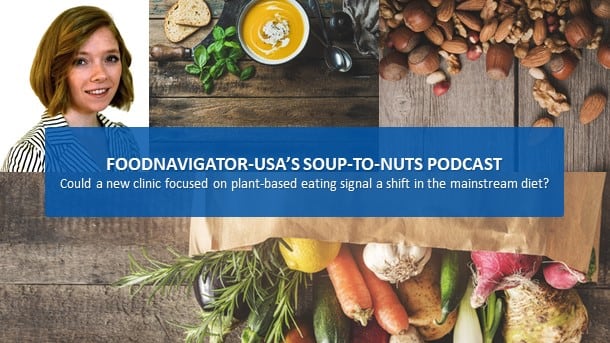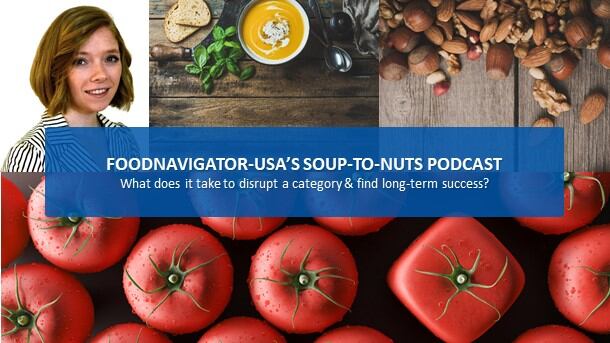On Wednesday, a team of scientists from around the world published in the medical journal The Lancet the first scientific targets for a global healthy diet and food production system based on three years of research and analysis. The commission’s controversial recommendation for feeding a growing population in a way that is both environmentally sustainable and will improve public health was to adopt a whole food plant-based diet.
Specifically, they recommend that by 2050 the global consumption of fruits, vegetables, nuts and legumes will have to double and consumption of foods such as red meat, dairy, sugar and refined grains must be reduced by more than 50%.
Needless to say, this recommendation has sparked quiet a controversy with animal agriculture stakeholders calling it “nuts,” and an “outrageous departure from consensus.” And while their concerns and arguments for continued consumption of animal-based products will resonate with some mainstream consumers, others already are embracing the recommended plant-based diet as a way to improve public health.
Among those advocating for the adoption of a whole-foods plant-based diet for improved public health are a team of physicians, nutritionists, health coaches and politicians in New York City who on Monday opened a pilot Plant-Based Lifestyle Medicine Program at Bellevue Hospital Center in Manhattan.
The program, which officially launched Jan. 16, was originally designed to work with 100 patients but an overwhelming positive reaction by the public to the program saw the number of willing participants on a waitlist swell to more than 260.
In this episode of FoodNavigator-USA’s Soup-To-Nuts podcast, we take a closer look at what is driving interest in plant-based eating, the potential impact of the diet and Bellevue Hospital Center’s program, what inspired the creation of the clinic and how it could be replicated around the nation. Key players in the clinic’s creation also share how CPG manufacturers and the agricultural industry can tap into consumers’ growing interested in plant-based eating.
Let food be thy medicine
As many in the industry already know, consumer interest in plant-based eating has been growing exponentially over the last few years, but for all the excitement there is also a lot of confusion about which plant-based products are healthy and what benefits they might offer.
A major goal of the Bellevue Plant Based Medicine Clinic will be to help clear up this confusion without dampening nascent patient enthusiasm for the lifestyle, according to Dr. Sapana Shah, who is one of the internists at the clinic.
“This program is specifically targeting patients who have cardiovascular disease, diabetes or prediabetes, hypertension, high cholesterol and patients who have weight issues. Through using lifestyle medicine and specifically diet, we are hoping to treat and hopefully reverse their chronic diseases,” she said.
The clinic will try do this by meeting with each patient and crafting a specific plan, complete with follow up, that also pulls in nutritionists and life coaches. So while the clinic won’t actually give patients the food, they will craft meal plans and teach them how to shop for healthy food on a budget.
Inspired by true life
The program is a collaboration between NYC Health + Hospitals and the Brooklyn Borough President Eric Adams, who wanted more New Yorkers to know about the potential health benefits of a plant based diet after he adopted the lifestyle to manage his own chronic disease.
Adams explains that he discovered he had type 2 diabetes at an advanced stage, but he didn’t believe his doctors when they told him that his eyesight and circulation would likely worsen over time and that he’d have to be on medicine the rest of his life.
He then reached out to physicians who advocate for a whole food plant based diet and after becoming a vegan, he says, his condition turned around. And he wants others to experience that same hope, which is why he helped raise the funds for the clinic.
A rocky road ahead
While Adams is optimistic about the program, he is also realistic about some of the challenges advocates for plant-based eating will face as they evangelize the potential health benefits of the lifestyle. One of the first – and potentially most difficult challenges, will be convincing medical professionals to consider food – and not just prescriptions – as medicine.
Another challenge the program will face will be helping patients stick to the diet even as they face push-back from friends, family and the broader culture that has not adopted the same plant-based diet.
“We know that any change of a lifestyle of this magnitude you are going to have some who will dive in head first and be success and you are going to have those who are going to waiver,” especially if they don’t feel supported by friends and family, he said.
“We have actually demonized healthy eating. People are sometimes embarrassed to talk about ‘I want to start eating healthy.’ If you want to see a group of friends get angry, let them know you are not eating meat anymore,” he added.
A closely related challenged that Shah pointed out is making affordable, healthy, plant-based meals more easily accessible, which is an area where industry can help.
“Something the agricultural industry can do to support patients and the food industry can do to support patients who are trying to make this change, is to try and make foods that are affordable, palatable and actually nutritious and delicious,” she said.
Based just on the huge influx of plant-based options flooding retail stores, many players already are taking up this charge.
Expanding the program – and diet – to more Americans
As Adams already hinted at, many stakeholders in the pilot program are already thinking about how the program can be expanded and replicated at other health care centers and touch points around the country.
A key element to the programs expansion, however, will be gathering sufficient scientific support to convince health care providers to all be on the same page, says Shah.
These may be lofty goals for a small program that is still in its first week, but as Adams notes – just because this movement and initiative is not yet on the radar of many health professionals, doesn’t mean it hasn’t taken flight.




